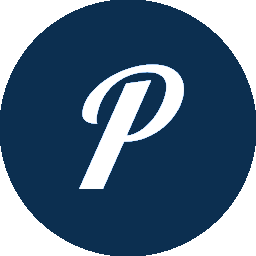Circus Becomes First AI Robotics Company to Join the German AI Association
|
EQS-News: Circus SE
/ Key word(s): Alliance
PRESS RELEASE Circus Becomes First AI Robotics Company to Join the German AI Association
Munich/Berlin, 28 March 2025 – Circus SE (XETRA: CA1), a global technology leader in AI-powered software and robotics for the food service sector, has officially joined the German Association of Artificial Intelligence Companies, the largest AI network in Germany. With this step, Circus becomes part of a select group actively shaping the regulatory and innovation framework for artificial intelligence across Europe. The membership marks another strategic milestone in Circus SE’s growth and innovation strategy and highlights the company’s long-term commitment to the responsible and forward-looking development of artificial intelligence. The association connects over 400 innovative AI companies working together to establish a strong, ethically sound, and economically sustainable future for AI — in line with Europe’s vision for digital sovereignty. As a publicly listed company, Circus SE aims to set benchmarks not only in technological excellence but also in governance and market positioning within the European AI ecosystem. “We believe in AI that is productive, scalable, and socially relevant and that’s exactly what we build every day,” says Nikolas Bullwinkel, CEO of Circus SE. “By joining the German AI Association, we gain direct access to regulatory insights, political decision-makers, and a unique innovation network, giving us not only an edge but real influence.” Circus SE continues to lead the field of embodied and agentic AI, combining intelligent software with robotics to create autonomous physical systems. With the recent acquisition of Fully AI and its previous collaborations with Meta on AI safety and open model guidance, Circus is doubling down on its proprietary AI-native operating system powering the CA-1 robotics platform and autonomous supply chain infrastructure. Daniel Abbou, Managing Director of the German AI Association, said: “We are delighted to welcome Circus Group to our association. The intersection of AI and robotics will become increasingly important in the coming years, and companies like Circus represent exactly the kind of innovation leadership Germany needs to maintain its competitive edge. We look forward to their important insights as we work together to shape the conditions for the next generation of intelligent physical systems.” About Circus SE Circus SE (XETRA: CA1) is a global technology company pioneering embodied AI and autonomous robotics for the food service industry. Its flagship product, the CA-1, is the world’s first fully autonomous cooking robot designed for commercial use. Powered by its proprietary software platform, the CA-1 delivers consistent, high-quality food at scale, while reducing labor dependency and enabling full kitchen automation. Headquartered in Munich, Germany, Circus is on a mission to build a global infrastructure for autonomous food production. About the German AI Association The German AI Association is the largest network for artificial intelligence (AI) in Germany, comprising over 400 innovative companies. It connects small and medium-sized enterprises (SMEs), start-ups, and experts focused on developing and applying AI technologies. The association's goal is to promote an active, successful, and sustainable AI ecosystem in Germany and Europe that can compete globally. As a political voice, the association represents the interests of AI entrepreneurs to policymakers, businesses, and the media. It facilitates the exchange of knowledge and experiences among members and supports the integration of AI innovations into established economic structures. The association places particular emphasis on applying AI in line with European and democratic values, aiming for Europe's digital sovereignty. Contact: Circus SE
28.03.2025 CET/CEST Dissemination of a Corporate News, transmitted by EQS News - a service of EQS Group. |
| Language: | English |
| Company: | Circus SE |
| Hongkongstrasse 6 | |
| 20457 Hamburg | |
| Germany | |
| E-mail: | ir@circus-group.com |
| Internet: | https://www.circus-group.com/for-investors |
| ISIN: | DE000A2YN355 |
| WKN: | A2YN35 |
| Listed: | Regulated Unofficial Market in Berlin, Dusseldorf, Frankfurt, Munich (m:access), Tradegate Exchange |
| EQS News ID: | 2107912 |
| End of News | EQS News Service |
|
|
2107912 28.03.2025 CET/CEST
P R O D U C T S U G G E S T I O N S
The information presented here has been provided by our content partner EQS-Group. The originator of the news is the respective issuer, the company relating to the news, a publication service provider (press or information agency) which uses the distribution service of EQS to transmit company news to shareholders, investors, investors or interested parties. The original publications and other company-relevant information can be found at eqs-news.com.
The information you can access does not constitute investment advice. The presentation of our cooperation partners, where the implementation of investment decisions would be possible depending on the individual risk profile, is solely at the discretion of the person using the service. We only present companies of which we are convinced that the range of services and customer service will satisfy discerning investors.
If you are considering leverage products, familiarise yourself with the typical characteristics of the financial instruments beforehand. Take the time to determine the risk content of the planned investment before making an investment decision. Bear in mind that a total loss cannot be ruled out with leverage products.
For newcomers to the subject, we offer various options in both the training and the tools section, through which you can train theoretical knowledge and practical experience and thus improve your skills. The offer ranges from participation in webinars to personal mentoring. The range is continuously being expanded.
1 Lab features are usually functionalities that emerge from the think tank of the investor community. In the early stages, these are experimental functionalities whose development process is largely determined by use and the resulting feedback from the community. When integrating external services or functionalities, the functionality can only be guaranteed to the extent that the individual process elements, such as interfaces, interact with each other.



